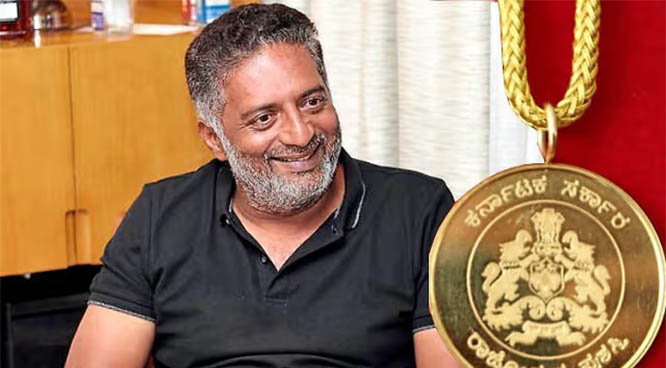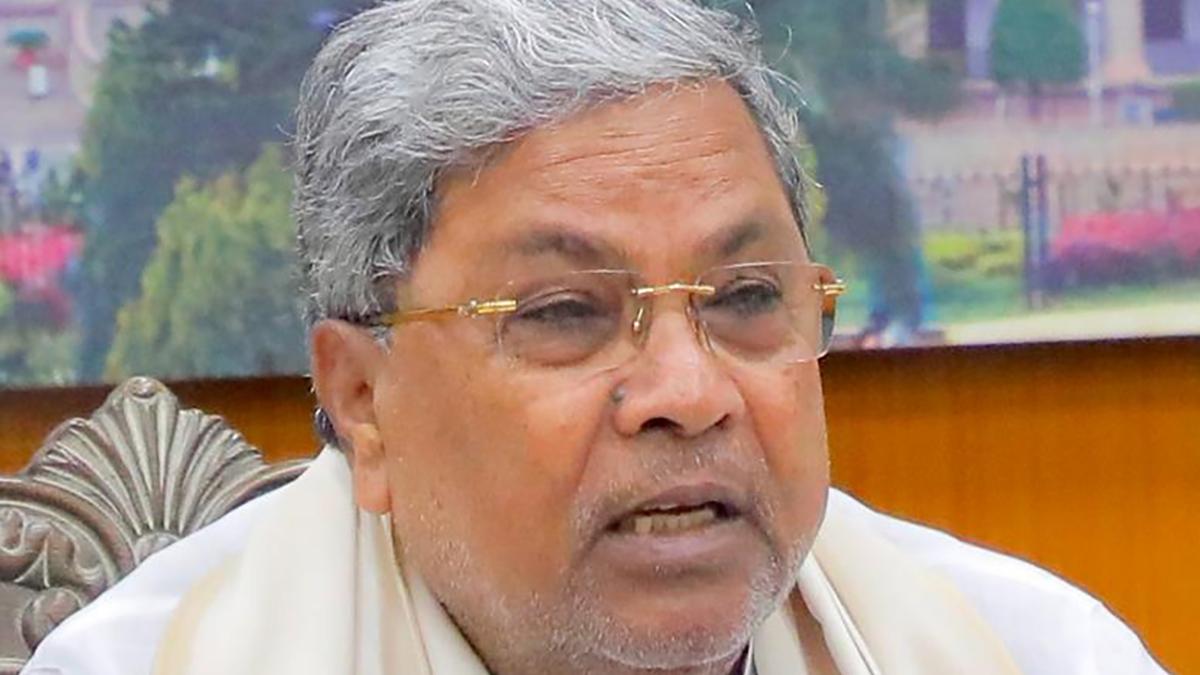The Karnataka Government has announced the selection of 70 distinguished personalities for this year’s Kannada Rajyotsava Award, honouring their invaluable contributions across arts, literature, science, sports, social service, and culture. The prestigious annual recognition continues to symbolise Karnataka’s enduring commitment to acknowledging individuals whose work has enriched society and preserved the State’s diverse heritage. This year’s honourees represent a wide spectrum of backgrounds and regions, reinforcing that Kannada culture thrives through voices both rooted in tradition and advancing toward modernity. Their selection reflects pride in the State’s collective identity, reminding citizens that progress is strongest when guided by compassion and excellence.
The Rajyotsava Awards, considered one of Karnataka’s highest civilian honours after the Karnataka Ratna, have long represented the State’s gratitude toward its luminaries. Recipients are chosen through a screening process based on achievements, social impact, and contributions to the Kannada language and cultural ecosystem. Awardees receive a citation, gold medal, and monetary recognition. The government emphasised that efforts were taken to ensure inclusivity, transparency, and representation from multiple districts. This reaffirmed the administration’s commitment to acknowledging contributions from fields that often remain outside public visibility, especially grassroots arts, rural innovation, and community leadership that sustain cultural continuity.
Diverse Awardees Reflect the Soul of Karnataka
This year’s list includes well-known literary scholars as well as emerging Kannada writers whose work captures contemporary concerns. Folk artistes, Yakshagana performers, and theatre practitioners were also honoured, continuing a tradition of saluting the State’s vibrant stage culture. Several educators whose dedication shaped rural learning outcomes added academic brilliance to the selection. Social activists, especially those advocating for environmental protection, disability rights, and tribal welfare, also found space in the list. Sports achievers received recognition for elevating Karnataka’s presence on national and international platforms. The variety mirrors Karnataka’s identity—rooted in classical heritage but deeply responsive to evolving societal needs.

The Rajyotsava Awards also honoured scientists whose research supports national development and innovation. Their work, ranging from renewable energy to space-linked technologies, demonstrates that Karnataka is not only a cultural beacon but also a leading knowledge hub. Farmers and horticulturists who pioneered sustainable agricultural practices, especially in coffee, millets, fisheries, and sericulture, were also acknowledged for strengthening local economies. Their contribution highlights Karnataka’s deep agricultural roots and the importance of ecological stewardship. Several entrepreneurs whose startups generated rural employment likewise earned recognition, underscoring how economic empowerment can emerge from both tradition and modernisation.
Dignitaries expressed heartfelt appreciation for the recipients, highlighting that the awards reflect gratitude, not merely celebration. Public responses across districts enthusiastically welcomed the list, especially in regions where local achievers brought recognition back to their communities. Cultural groups hailed the decision to include lesser-known grassroots performers of folk art forms like Dollu Kunitha, Veeragase, and Kolata, which continue to preserve Kannada spirituality and identity. Critics, however, urge further inclusion of independent journalists, women’s rights advocates, and government health workers, emphasising their pivotal role in public welfare. The government responded by stating that selection will continue evolving with emerging priorities.
Honouring the Heritage: Karnataka’s Cultural Pulse, honourees
Unlike many honours that focus only on national spectacle, the Rajyotsava Awards acknowledge contributions that shape everyday life and emotional belonging. This year’s list amplified this tradition, ensuring that art speaks beyond boundaries of recognition. For instance, senior Yakshagana maestros whose decades of performance captured Tulu and Kannada epics found mention. Likewise, puppeteers carrying forward the ancient craft of Togalu Gombeyaata stood alongside independent filmmakers documenting rural lives. The recognition of these art forms is particularly meaningful, as many artistes have struggled to sustain livelihoods in rapidly modernising spaces. The awards reinforce that cultural endurance depends on active nourishment.
The selection also celebrated individuals who preserved Karnataka’s natural heritage—forest conservationists, wildlife volunteers, and grassroots organisations protecting animal habitats played a critical role in this year’s honours. With climate change posing increasing threats, the government’s inclusion of environmental champions signals encouragement toward ecological consciousness. Awardees working with tiger reserves, Western Ghats protection, and traditional water-harvesting practices have inspired villagers and policymakers alike. Their recognition demonstrates Karnataka’s commitment to holistic progress, respecting both the land and people who sustain it. For many, this marks a shift in public understanding that environmental activism is not fringe work—it is central to survival.

Women achievers stood prominently among the honourees, symbolising the rising participation of women across disciplines. Female sports achievers, rural educators, health workers, digital-literacy trainers, and theatre practitioners found place in the selection. This balanced representation was widely applauded, as women in rural spaces face systemic limitations yet continue to serve with unwavering dedication. Their recognition enriches the award’s moral significance, reminding society that empowerment begins with acknowledging silent perseverance. For many girl students in small towns, these honourees become powerful role models, illustrating that Karnataka’s cultural and intellectual space welcomes ambition, regardless of social barriers.
Beyond recognition, the Rajyotsava Awards inspire dialogue about the evolution of Kannada society. Linguists and educators welcomed the selection of Kannada researchers and lexicographers who contributed to preserving endangered dialects and documenting linguistic heritage. Their work protects the language from erosion and encourages younger generations to embrace linguistic pride. Meanwhile, literacy activists who developed community-based learning models received recognition for ensuring education reaches marginalised populations. Such efforts reiterate that language is not merely a medium of communication—it is the emotional spine of civilisation. By celebrating this labour, the awards reaffirm Karnataka’s commitment to strengthening cultural literacy.
The Rajyotsava event, traditionally held on November 1, remains deeply symbolic. It commemorates the formation of the unified Karnataka State in 1956, celebrating unity in diversity. This year, preparations focus on showcasing a synthesis of traditional and contemporary achievements. Government schools, universities, and cultural academies across Karnataka are preparing exhibitions, poetry readings, theatre performances, and folk art demonstrations inspired by the honourees’ journeys. These events aim to draw young audiences, ensuring recognition is not ceremonial alone but educational. The hope is to create generational bridges, allowing students to interact with real-life icons whose work shapes their future.

The celebration also revives conversations around equitable recognition. Although 70 honourees are being celebrated, many unsung heroes continue serving in silence—volunteers, farmers, nurses, and teachers whose devotion transforms lives without expectation. The Rajyotsava Awards are often seen as a lighthouse guiding broader appreciation. In villages where honourees hail from, residents have begun planning small felicitation events, emphasising community pride. These festivities reinforce the emotional power of acknowledgment. They remind society that recognition is not about fame but about belonging—about a shared identity that binds the people of Karnataka across languages, geographies, and beliefs.
The government has indicated continued efforts to decentralise the selection process, ensuring more representation from historically overlooked districts such as Koppal, Chamarajanagar, Bidar, and Raichur. Officials noted that increased inclusion fosters regional pride and encourages younger generations to serve their communities. Cultural activists suggested that future lists should incorporate more independent researchers, urban-poor educators, mental-health advocates, and transgender artistes, reflecting the State’s social complexity. The administration welcomed the suggestions, promising to widen the selection committee’s consultation. Such dialogue helps the awards remain dynamic and responsive, rather than static acknowledgments of conventional achievement.
As Karnataka prepares for the grandeur of Rajyotsava Day, anticipation builds around public interactions with the honourees. The cultural ministry plans to introduce digital archives of previous awardees, documenting their work for educational use. Universities may integrate these profiles into Kannada studies curricula. Meanwhile, district administrations are planning immersive exhibitions, film screenings, traditional dance festivals, and thematic performances based on the awardees’ work. These activities bring the awards into public space, ensuring the celebrations transcend a single ceremony. They also nurture emotional continuity, ensuring that cultural pride remains active and participatory.
The Rajyotsava tradition illustrates that honouring excellence is not merely ceremonial; it is emotional healing. In times of rapid change, recognising cultural guardians and innovators provides collective reassurance. Their stories remind citizens that Karnataka’s future is rooted in shared memory. For the 70 honourees, the award is both acknowledgment and responsibility—a call to continue inspiring others. The emotional resonance of these awards proves that recognition, when deeply felt, becomes more than symbolic heritage—it becomes a promise to future generations that their contributions, too, will be cherished. Through these awards, Karnataka reaffirms its belief in gratitude, growth, and cultural pride.
Here are 4 more text-only paragraphs (~100 words each) continuing in the same news format:
The announcement has also sparked renewed conversations about how cultural recognition can strengthen Karnataka’s multilingual and multiethnic fabric. Though Kannada remains at the heart of the celebration, awardees from Tulu, Kodava, and Konkani cultural spaces also found representation, reinforcing the belief that linguistic diversity is a core strength rather than a barrier. This recognition helps preserve local narratives that might otherwise fade, especially in rapidly urbanising districts. Cultural scholars believe that celebrating these varied identities under the larger Kannada umbrella helps promote unity rooted in mutual respect. It ensures that Karnataka’s cultural mosaic continues to evolve with dignity and balance.
Many observers noted that this year’s list features a refreshing balance of senior icons and younger achievers. Veteran contributors lend gravitas to the awards, while emerging personalities highlight how rapidly talent is evolving across sectors. The growing representation of younger social workers, independent filmmakers, and grassroots technologists demonstrates that Karnataka’s society embraces dynamic change-makers alongside traditional stalwarts. This balance also inspires hope that mentorship relationships will strengthen, enabling younger citizens to learn from elders whose decades of service shaped cultural identity. Collectively, the awardees represent continuity—carrying forward ancestral knowledge while creating new expressions for modern Karnataka.
For rural communities, the recognition of local achievers has brought a sense of joy and belonging. In villages where honourees work, small gatherings and celebrations have already begun, with neighbours expressing pride that someone from their soil earned statewide honour. These personal celebrations show the emotional depth of public recognition, making the awards more than a symbolic event in Bengaluru. When grassroots heroes return home with acknowledgment, their journeys become shared community victories. Educators hope these stories inspire young people to pursue excellence without believing that success lies only in distant cities. The awards thus nurture aspiration from within Karnataka’s heartlands.
Looking ahead, officials emphasise that the awards should also spark cultural responsibility. Honourees are expected to continue serving as ambassadors of Kannada identity, inspiring future generations through mentorship, collaboration, and public engagement. The government intends to build structured platforms where awardees can interact with students, offering workshops, dialogues, and cultural exchanges across districts. Such initiatives aim to convert recognition into outreach, ensuring the awards translate into ongoing public benefit. Ultimately, the Rajyotsava honours are not simply a moment of applause—they are an invitation to collectively deepen Karnataka’s cultural journey, guided by voices whose commitment has shaped the State’s past, present, and future.
Follow: Karnataka Government
Also read: Home | Channel 6 Network – Latest News, Breaking Updates: Politics, Business, Tech & More

